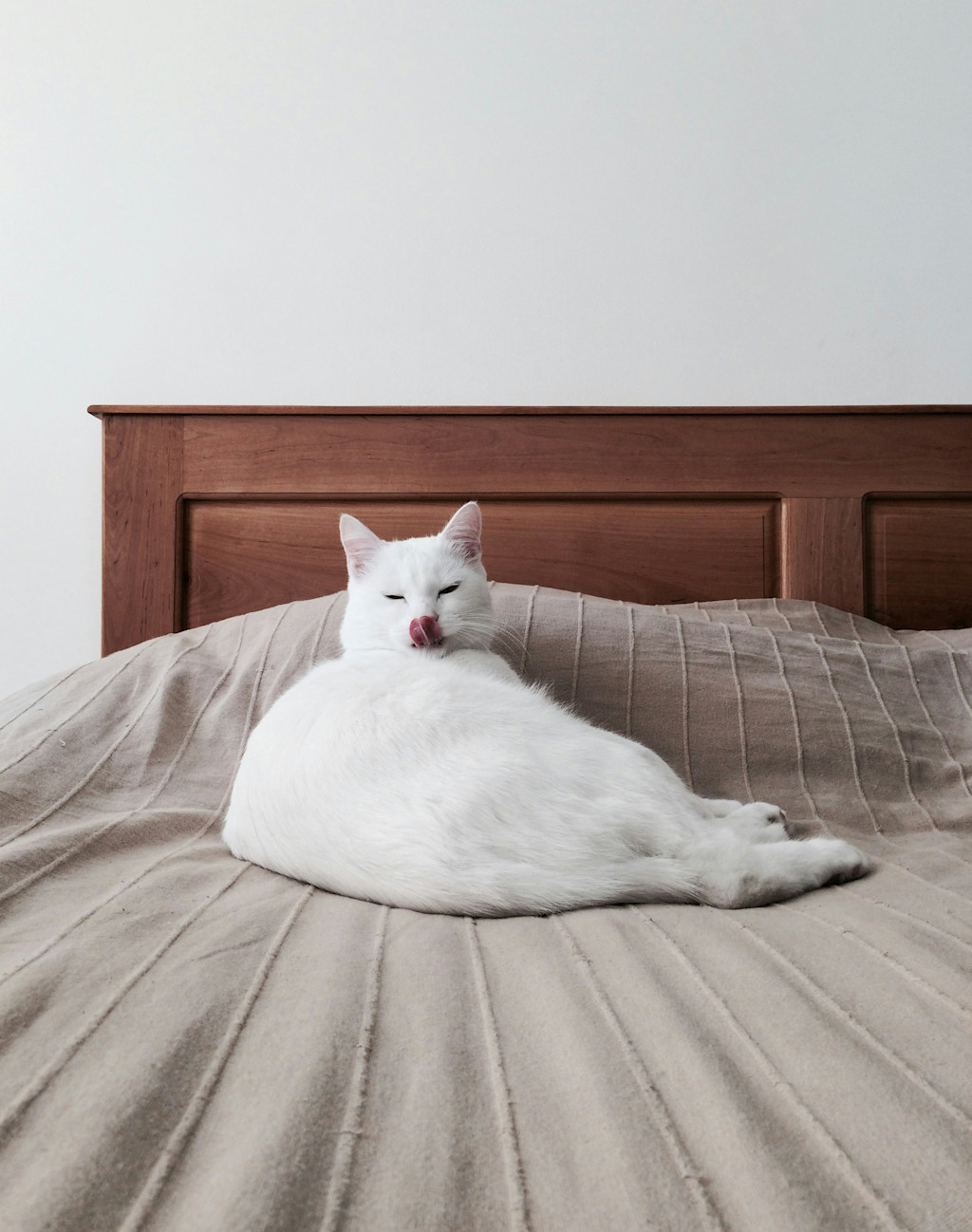

How To Be a Cat Parent and Also Own Nice Things
tipsMy first furniture splurge was a couch, a big, beautiful gray couch from a fancy store I couldn’t really afford. I was finally adulting, I told myself. This couch will last forever.
My cats, however, had other plans. Within just a few weeks, they’d completely shredded the couch’s right front corner. This is why we can’t have nice things, I told them.
It took me a decade to realize that the destruction had been preventable. Cat parents can have nice things, but only if we provide alternative outlets for natural behaviors like scratching—and get a little creative when needed.
Cat dilemma: Scratching things they shouldn’t
Cats don’t scratch out of spite—though it may feel that way sometimes. Scratching is an innate behavior that serves both as a form of communication and as a way to stretch and condition the claws. Some prefer to scratch vertical surfaces, while others prefer horizontal surfaces like rugs. But whether the surface they choose is your expensive couch or somewhere less precious often depends on their options. If you don’t have posts or pads designed for cat scratching, you’re essentially inviting your cat to destroy your furniture.
Where you put your cat scratchers matters, though. Since cats mark their territory with their claws and the scent glands in their paws, they often look for prominent places in the center of a room to stake their claim, making couches and comfy chairs desirable victims. Try putting a scratching post near places they’ve clawed in the past (and consider placing multiple scratchers throughout the home). If you have a vertical-scratching kitty taking down your couch, the Sofa Scratcher, a scratching post made to nestle against a couch corner, is a life saver.
What to do when scratching posts and pads aren’t working
If you’ve provided your cat with scratching alternatives but they’re still unwilling to leave your furniture alone, the key is to make their preferred places less attractive. Try putting clear furniture shields or double-sided furniture strips over their favorite spots. Their slick and sticky surfaces take all the fun out of scratching. If those fail, consider picking up a set of claw covers like Soft Claws. These fake nails slip over and glue securely to each of your kitty’s claws, allowing them to still go about the scratching motion without actually doing any damage.
No matter how destructive your cat is claw removal is not an ethical option. Cats who have their claws removed can experience a lifetime of pain and other behavioral issues that stem from the inability to scratch at all. No fancy couch is worth tearing out an animal’s nails from the root.

Cat dilemma: Urine spraying or accidents
Cat urine stinks and, if you have a cat who sprays, it won’t be log before your whole home stinks. Trust me, I’ve been there. Spraying is a form of communication, just like scratching. However, if it’s happening indoors, it may indicate that your kitty is stressed out or at war with another pet (or a feline stranger who frequently visits your property). While a veterinary behaviorist can help you understand why your cat is spraying, an enzymatic urine destroyer like Skout’s Honor or a homemade solution that’s half white vinegar and half water can address the stench. Just stay away from cleaning products that contain ammonia. Its scent can trigger your cat to spray.
Talking to your vet should be the first move if it’s incontinence or accidents you’re struggling with. It could indicate that your cat is experiencing an infection, chronic pain, or severe stress. If it’s the latter, the litter box itself may be the problem. Cats are both fastidious and finicky, and if their litter box is too small, if it is located next to a noisy machine like a dryer, if it isn’t being cleaned frequently enough, or if you don’t have enough of them for the number of cats in your household, they may be expressing their displeasure with inappropriate elimination.
Litter boxes do their best job when they are at least 1.5 times the length of your kitty, located somewhere quiet and filled with unscented litter. If you have multiple cats, having one litter box available per cat plus an extra is a good rule of thumb. Traditionally, multiple litter boxes would really cramp your style. Still, these days there are many design-forward options for concealing them, and even some automatic litter boxes, like the Litter Robot, are slightly more attractive than most.
In some cases, especially if you have a senior or differently-abled kitty, there may ultimately be no getting around the fact that accidents will happen. Cat diapers are an option to keep your furniture clean but, if your cat can’t or won’t tolerate them, consider strategically placing a few washable throw blankets with waterproof lining or backing in the spots your kitty most likes to curl up.
Cat dilemma: Toys and furniture that distract from your decor
It’s fair to say that most cat furniture and toys aren’t exactly designed with style in mind. But over the last few years, there’s been an explosion of artisanal pet supply companies, including Mau Pets and The Cat Butler, that are changing the game. Even major retailers like Chewy and Amazon now offer scratching posts, towers, beds, toys, and other equipment options you can tailor to your decor.
Cat parents can have nice things, just remember that some destructive behaviors are natural or may be triggered by pain or stress. Always consult your vet if your kitty suddenly begins scratching or eliminating inappropriately. It may mean they are responding to a physical, emotional, or environmental challenge.
For more tips and advice on keeping your kitty happy and healthy, check out the other articles in our blog, Small Talk.